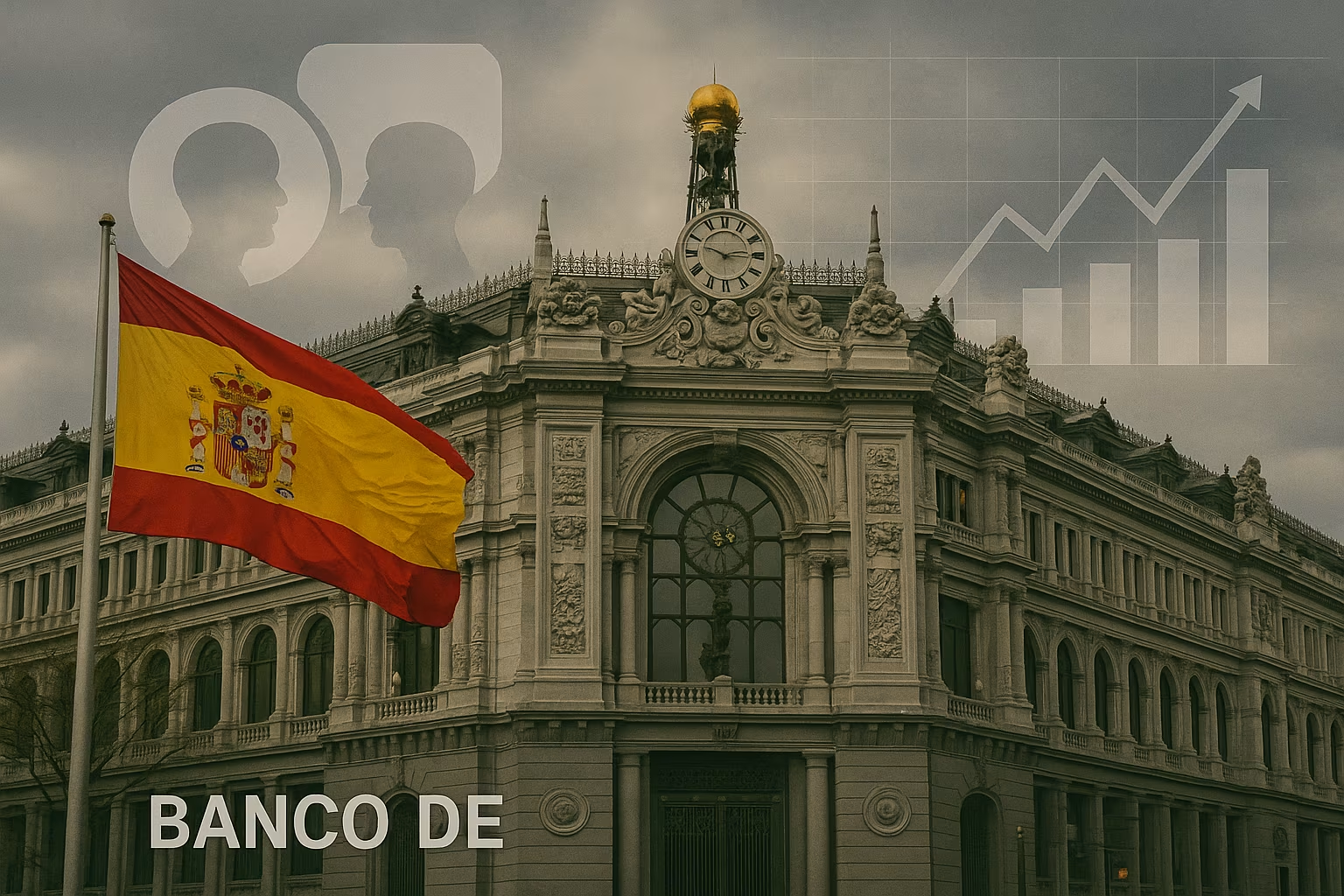The Bank of Spain is grappling with one of the most turbulent periods in its recent history, as political tensions and governance disputes have triggered a wave of high-profile departures from its leadership ranks. The ongoing turmoil raises concerns about the institution’s stability, credibility, and its ability to maintain focus on its critical mandate of safeguarding financial stability and contributing to eurozone monetary policy.
A Central Bank Under Pressure
The Bank of Spain plays a dual role — acting as the nation’s primary financial regulator and representing Spain within the European Central Bank (ECB) system. This dual mandate demands both technical expertise and political independence. However, the recent series of resignations has exposed deep fractures in the bank’s leadership, with political influences and disagreements over policy direction emerging as key drivers of instability.
Reports suggest that the exodus has been fueled by a combination of internal disagreements, political interference, and disputes over the bank’s strategic priorities. The departures come at a time when Spain faces economic headwinds, including elevated inflation, slowing growth, and pressures from rising interest rates across the eurozone.
Recent Departures
Among those leaving their posts are senior officials who held critical roles in banking supervision, economic research, and policy coordination. While some have cited personal reasons, others have openly expressed frustration over the increasing politicization of decision-making within the institution.
These exits follow months of speculation about strained relationships between the bank’s top leadership and its governing council, as well as between the Bank of Spain and government officials. Tensions reportedly escalated over disagreements related to financial regulation, housing market policy, and the implementation of ECB monetary measures in the Spanish economy.
Political Undercurrents
The political dimension of the turmoil cannot be ignored. Critics allege that partisan influence is eroding the bank’s independence, a cornerstone of effective central banking. Appointments to senior positions have come under scrutiny, with accusations that some choices were driven more by political loyalty than by technical expertise.
In Spain’s politically charged environment, central bank policy decisions — from interest rate guidance to financial sector oversight — often attract political attention. As such, leadership instability can amplify perceptions that the bank’s decisions are being shaped by political agendas rather than sound economic judgment.
Implications for Economic Policy
The instability within the Bank of Spain arrives at a sensitive moment for the country’s economy. Inflation, while moderating from its peak, remains above the ECB’s 2% target, forcing households and businesses to contend with elevated prices. At the same time, Spain’s economic growth has begun to lose momentum, weighed down by weaker external demand and tighter credit conditions.
The Bank of Spain’s role in implementing and communicating ECB policy domestically is crucial to maintaining confidence in the financial system. A leadership vacuum or prolonged governance uncertainty risks undermining this role, potentially impacting the bank’s effectiveness in guiding markets and the public.
International Perception
From an international perspective, central bank independence is a key signal to investors and global markets. Any perception of political instability or undue influence can have real consequences, including higher risk premiums on government debt, reduced foreign investment, and currency volatility.
In the context of the European Central Bank’s integrated monetary framework, national central banks like the Bank of Spain are expected to provide impartial input into eurozone-wide decisions. Internal instability may weaken Spain’s influence within the ECB and diminish its ability to advocate effectively for national interests.
Calls for Reform
The recent turmoil has sparked renewed calls for reforms to strengthen governance and safeguard the central bank’s independence. Proposals include clearer appointment procedures for senior officials, greater transparency in policy deliberations, and stronger legal protections against political interference.
Economists and former bank executives argue that insulating the institution from partisan politics is essential to preserving its credibility. Without such reforms, they warn, the bank risks repeated cycles of instability that could erode public trust and hinder effective policymaking.
The Road Ahead
For now, the immediate priority will be to fill the vacant positions with highly qualified professionals who can restore stability and refocus the bank on its core mission. This will require cooperation between the central bank, the government, and the broader financial community — a challenging task in Spain’s polarized political environment.
Key upcoming challenges for the Bank of Spain include:
- Implementing ECB policy while addressing domestic economic pressures.
- Managing financial sector risks, including exposure to real estate and potential non-performing loans.
- Rebuilding internal cohesion to ensure consistent and credible communication with markets.
- Reasserting its independence to restore confidence among investors and the public.
The political storm engulfing the Bank of Spain highlights the delicate balance between central bank independence and the realities of operating in a politically charged environment. As officials continue to exit and tensions remain high, the institution faces the dual challenge of managing its internal crisis while maintaining its role as a key pillar of Spain’s financial stability.
The outcome of this period will not only shape the bank’s future but could also have broader implications for Spain’s economic resilience and its standing within the eurozone. Restoring stability, safeguarding independence, and reinforcing public trust will be essential steps in navigating the turbulent road ahead.





